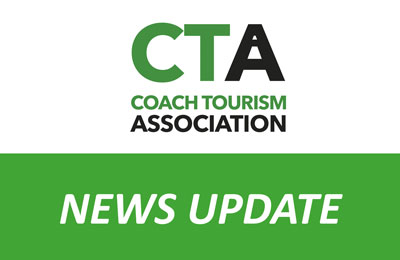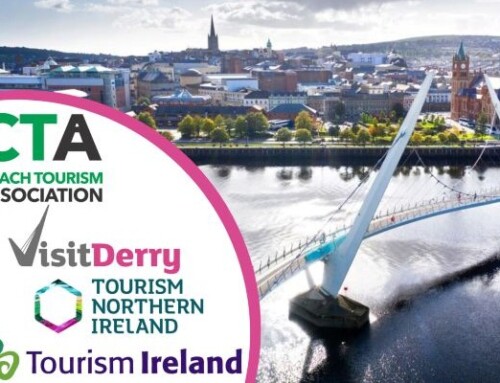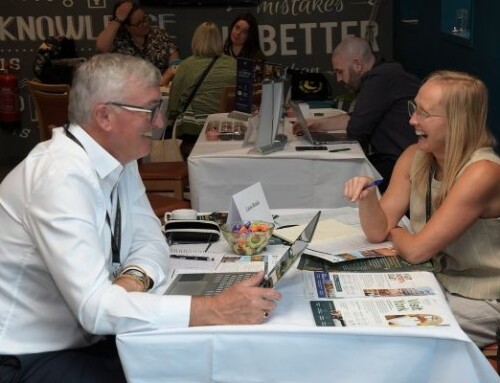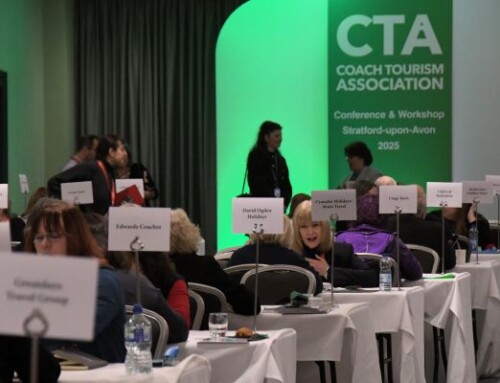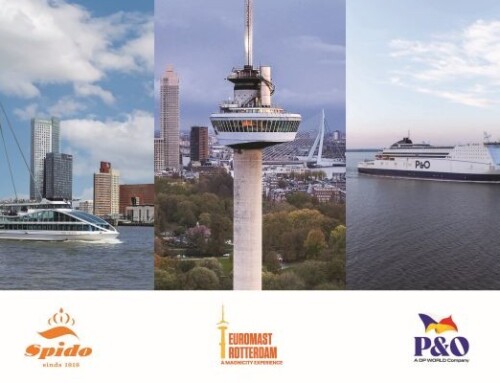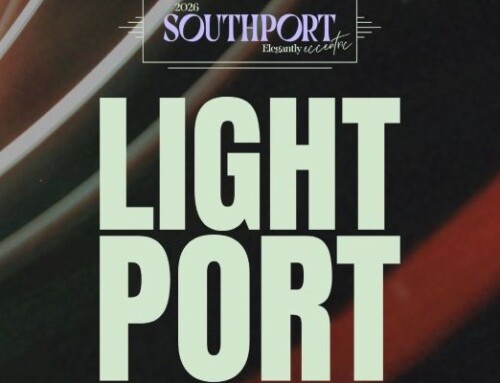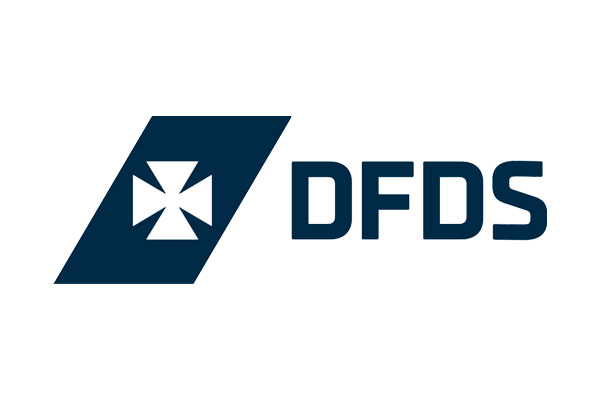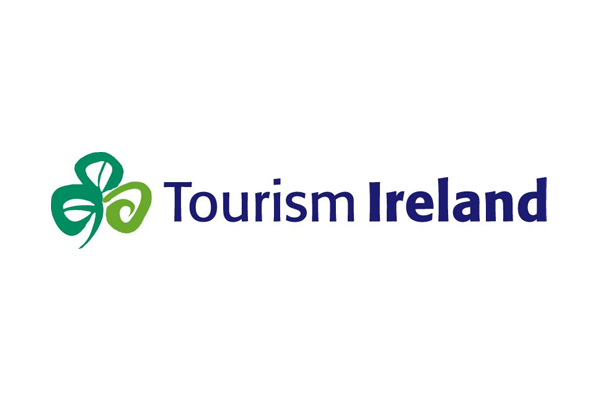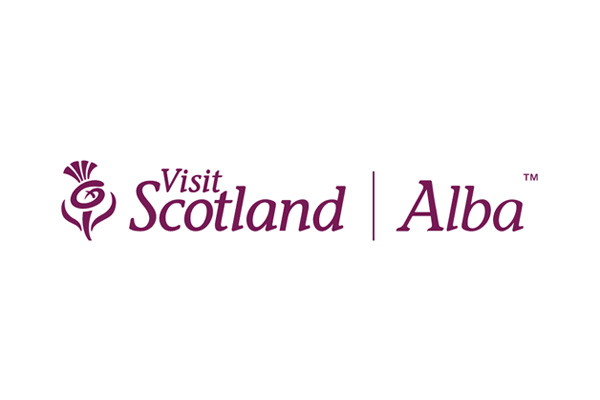COVID-19 Updates – week commencing 03/08/20
More updates of developments from the government and various links to interpretation and guidance.
Go to date:
3 August 2020 …
Tourism Alliance updates:
The Government has issued the following new guidance on where masks should be worn. This guidance became mandatory on 8 August. Of note is the inclusion of the public areas of hotels (I expect this will apply to all holiday accommodation) as well as indoor attractions, entertainment and cultural venues.
Where will people need to wear face coverings?
We are now recommending that face coverings are worn in additional indoor settings and this will be enforceable in law.
Currently you are required to wear face coverings in shops, supermarkets, indoor shopping centres, indoor transport hubs and public transport.
For members of the public, from 8 August this will be expanded to include:
- funeral directors
- premises providing professional, legal or financial services
- cinemas
- theatres
- bingo halls
- concert halls
- museums, galleries, aquariums, indoor zoos or visitor farms, or other indoor tourist, heritage or cultural sites
- nail, beauty, hair salons and barbers – other than where necessary to remove for treatments
- massage parlours.
- public areas in hotels and hostels
- places of worship
- libraries and public reading rooms
- community centres
- social clubs
- tattoo and piercing parlours
- indoor entertainment venues (amusement arcades, funfairs, adventure activities such as laser quest, go-karting, escape rooms, heritage sites)
- storage and distribution facilities
- veterinary services
- auction houses
We recommend face coverings are worn in these settings now, but this will not be mandatory until 8 August.
North West lockdown
The guidance related to the lockdown has been updated to address some of the issues related to the measures in north west England .
I live in the area. Can I leave the area to go on holiday?
You should not travel outside of this area to meet people in their homes or gardens. You can still go on holiday, but you should only do this with people you live with (or have formed a support bubble with).
So accommodation providers in other areas are still able to accept guests from inside the lockdown area – which is good. However, it seems like two households from within the area can’t stay together in accommodation outside the area and there is still uncertainty as to whether two households from outside the lockdown area can stay together on holiday in the lockdown area.
https://www.gov.uk/guidance/north-west-of-england-local-restrictions-what-you-can-and-cannot-do
Scottish Guidance
It is also important to note that the Scottish Parliament has issued advice to Scottish residents saying that they should not undertake unnecessary travel to the lockdown area – which would include leisure and tourism related travel. Scottish residents already in the area on holiday are being told that they do not have to truncate their stay while people in the local down area planning to travel to Scotland are being asked to cancel their plans.
https://www.gov.scot/news/travel-to-north-west-of-england/
Prime Minister’s Speech
Here’s a link to the prime minister’s speech at lunchtime where he delayed the lifting of restrictions planned for tomorrow until at least 15th August and announced that face masks would be required for more indoor venues. We are still trying to find out the full list of venues that face mask wearing will be mandatory and will get back to you as soon as possible on this. It is also worth noting that he stated that he has asked the Home Secretary to work with the police to ensure existing rules are being properly enforced and that local authorities close down premises and cancel events which are not following Covid Secure guidance.
Impact on the National Museums
DCMS have published on the impact the Coronavirus and social distancing are having on visitor numbers at the national Museums. At the moment only four of the Museums are open – the National Gallery, National Museums Liverpool, The Wallace Collection and Royal Museums Greenwich. The figures show that footfall at these museums is averaging just 8.5% of what it was compared to the average of the comparative period over the last three years.
Social Impact of Coronavirus
ONS have produced their latest Social Impacts research update which has some relevant findings for tourism businesses.
-
- While 34% of people say that they are comfortable eating inside at a restaurant, 42% of people say that they are not comfortable with doing this
- Only 12% of people are comfortable using an indoor gym, 13% are comfortable using an indoor swimming pool and 19% feel comfortable using an outdoor swimming pool.
Job Retention Bonus Details
HMRC have published further details on the Job Retention Bonus. Businesses will receive a one-off payment of £1,000 for every previously furloughed employee if they are still employed at the end of January next year. The eligibility criteria for it are:
-
- employers will receive a one-off payment of £1,000 for every employee who has previously been furloughed if they remain continuously employed to the end of January 2021
- employees must earn at least £520 (the National Insurance lower earnings limit) a month on average between the beginning of November and the end of January
- those who were furloughed and had a claim submitted after the 10 June (when the CJRS closed to new entrants), because they were returning from paternal leave or time serving as a military reservist will also be eligible for the bonus as long as they meet the other eligibility criteria
- employers will also be eligible for employee transfers protected under TUPE legislation, provided they have been continuously employed and meet the other eligibility criteria and the new employer has also submitted a CJRS claim for that employee
https://www.gov.uk/government/publications/job-retention-bonus/job-retention-bonus
Changes in Wales
The Welsh Parliament has announced that, from 3rd August:
-
- The restrictions preventing more than two households or extended households meeting outdoors will be changed to allow up to 30 people to meet outdoors. Physical distancing must be maintained at all times.
- Pubs, bars, restaurants, cafes will be able to re-open indoors. As will indoor bowling alleys, auction houses and bingo halls.
- Licenced wedding venues will be able to re-open to provide wedding ceremonies. However, indoor receptions will not be able to take place for the time being – they will be considered as part of the changes for August 15.
- The guidance will be updated to relax the position on children under 11 having to maintain a 2 metres distance from each other or from adults.
` They have also announced that if conditions remain favourable, from 10 August:
-
- Swimming pools, indoor fitness studios, gyms, spas and indoor leisure centres will be able to re-open.
- Children’s indoor play areas will be able to open.
https://gov.wales/tourism-and-hospitality-businesses-guidance-phased-reopening-html
Luxembourg Removed from Exemption List
Luxembourg has been removed from quarantine exemption list from today and the FCO is now advising against all non-essential international travel to the country.
Sage Scenario Modelling From March
Sage’s scenario modelling of the disease that they undertook in March has been released and makes for rather sobering reading. Their modelling is based on a “reasonable worst-case scenario” and looks at what happened under that scenario if restrictions are ended after six months. Their model predicted two waves – the first being up until Sept 2020 and the next being from Sept 2020 to Feb 2020.
-
- The predicted that in Wave one there would be 65,000 deaths and 320,000 people needing hospitalisation – the figures to date are 46,000 deaths and 130,000 people hospitalised so far fewer people needed hospitalisation that their worse case scenario but the number of deaths is much closer to their model.
- The model indicates that if restrictions are removed in Sept, the number of cases and deaths would skyrocket in November and December. While they point out that there is significant uncertainty in the modelling, it does highlight the ability of the disease to bounce back very quickly if given the opportunity.
A further paper from Sage compares the predicted impact of Coronavirus to an Influenza epidemic (the astute among you will note that paper is dated 3 March – which is prior to talk about herd immunity).
Operational updates from CPT:
ANNUAL TESTING – DVSA UPDATE
Heavy vehicle testing has resumed at Authorised Testing Facilities (ATFs) from 04 July 2020
Members will aware that DVSA has been issuing certificates of temporary exemption (CTEs) to vehicles due for test from March through to August
DVSA are now in a position to update operators with their longer term plans to ensure vehicles can be tested, and demand is effectively managed
The three pillars of their plan are:
- Extensions will continue to be issued for certain vehicles until March 2021
- Three month CTEs will continue to be issued to vehicles that have not previously had their test date extended
- Twelve month CTEs will be introduced for certain operators and vehicles
Therefore it is confirmed that vehicles due for test up to 31 March 2021 that have not previously benefited from an exemption will get a 3-month exemption
In addition, Earned Recognition operators and those demonstrating a higher level of compliance will receive 12-month exemptions. This will also apply to newer vehicles, that will not require an annual test during the first two years after the date of their first registration
The twelve month extension will apply to:
- Earned Recognition operator (whole fleet)
- Operator in green OCRS roadworthiness band with 50 or more roadworthiness events and a calculated roadworthiness base score of 1.3 or lower on 27 July 2020
- Vehicles up to two years old
All exemptions will be applied automatically
Both the 3 and 12 month exemptions will apply from the original test date
For Public Service Vehicles (PSVs), the exact date of expiry will be retained
The 3 month exemptions will begin to be applied immediately
The 12 month exemptions will begin to be applied from 24 August. This will mean that some PSVs will not get a full 12 month exemptions as their individual August 2020 expiry date may be prior to 24 August 2020
12 MONTH EXEMPTIONS – ELIGIBLE OPERATORS
Longer exemptions will only be applied to vehicles that are specified on operator licences
All eligible operators should ensure their vehicle lists on Vehicle Operator Licensing (VOL) are up to date by 21 August 2020
Operators with a green OCRS roadworthiness score can find out if they will qualify for a 12-month exemption by asking for a copy of their OCRS report covering the 3 year period to 27 July 2020
12 MONTH EXEMPTIONS – ELIGIBLE VEHICLES
Longer exemptions will be applied to vehicles which are up to 2 years old
This will not be linked to OCRS score or operator licence status
Where an exemption has already been issued to the particular vehicle the test date will be made up to 12 months
This will retain the test date and month of the original test prior to any exemption being issued
PUBLIC SERVICE ACCESSIBILITY REGULATIONS 2000 – SPECIAL AUTHORISATIONS
Yesterday (30 July) CPT received a letter from the Minister of State for Transport, Chris Heaton-Harris MP containing details of a new exemption for closed door home to school services
In the letter, the Minister says that operators should not expect an indefinite exemption from the Regulations but acknowledges CPT’s proposal of an alternative approach for increasing the availability of compliant vehicles, ensuring that disabled children and young people who wish to travel with their peers are able to do so
The Minister expects the industry to work with the Department to develop a workable, sustainable approach, which is fair to operators, but importantly, demonstrates clearly to disabled people that we are committed to enabling them to travel like anybody else
ELIGIBILITY FOR SPECIAL AUTHORISATIONS
The Department for Transport is offering a “Special Authorisation” under s178 of the Equality Act 2010 to exempt vehicles operated by specific operators from Schedules 1 to 3 of the Public Service Vehicles Accessibility Regulations 2000 (PSVAR) for a period of one year from 1 August 2020 until 31 July 2021
The Special Authorisations (exemptions) will be valid only when the vehicles are operating a service to or from one or more educational establishments, transporting one or more of the following:
- a student receiving Primary, Secondary or Further education or training at that establishment
- someone supervising or escorting a student while they are using the transport
- someone involved with the provision of education or training at that establishment
Exemptions will be available to operators of relevant services in England, Scotland and Wales and will be issued when a valid application has been received by the Department
The eligibility criteria is wider than the original exemptions that expire on 31 July 2020
There is now no necessity for the service to have been procured by a LTA or by an educational establishment. All home to school services, however procured will be eligible for an exemption
In addition, services that were not eligible for the November 2019 exemption for local authorities due a fare being paid for more than 20% of the seats would also be covered by this new exemption, but only until July next year
APPLICATION AND ISSUE OF CERTIFICATES
Operators that previously applied for and received an exemption certificate that will expire on 31 July 2020 will be contacted by the Department and asked if they wish to apply for the new exemption. In these cases operators will not be required to complete a further application and new certificates will be issued using the information previously supplied
If an operator has not been contacted by 7 August 2020, they should contact the Department using HomeToSchoolExemptions@dft.gov.uk with the subject line “HTS3 Application Form Request”
Operators which have not previously applied for an exemption for home to school services should send an email to HomeToSchoolExemptions@dft.gov.uk with “Exemption 3 Application Form Request” in the subject line. Full details of the application process will then be provided
General enquiries regarding the new exemptions should be sent to HomeToSchoolExemptions@dft.gov.uk with “Exemption 3 Enquiry” and an indication of the question in the subject line
Operators that have applied for the new exemption and also meet any eligibility criteria, will be issued with an exemption certificate.
A copy of the certificate should be carried onboard the vehicle when it is undertaking a HTS service covered by the exemption, and it must be made available to DVSA Vehicle Examiners or other relevant officers requesting it
DVLA has announced that, as a result of the impact of the COVID19 pandemic, Ministers at the Department for Transport have agreed to adopt a temporary measure to assist drivers in complying with the driving licence renewal requirements
To make it easier for drivers who need to renew their photocard licence or their entitlement to drive, when the licence expires between 1 February 2020 and 31 August 2020, there will now be a 7-month extension from the date of expiry
This means that drivers will not need to renew their photocard or entitlement to drive until seven months after the original expiry date
The extension is automatic so drivers do not need to take any action
The driver record will show the current expiry date on the driving licence, the record will be updated once an application is made to renew the licence at the end of the extension period
At the end of the extension period drivers will be sent a renewal reminder form to complete
If a driver has already applied online to renew their photocard this will be processed as normal.
This extension applies to all full licence renewal applications including short period medical licence and vocational licence renewals
However it does not apply to provisional driving licences or where the licence needs to be renewed following a disqualification
DVLA reiterate that by law, all drivers must ensure that they always meet the medical standards for fitness to drive when driving
SENIOR TRAFFIC COMMISSIONER – UPDATED ADVICE DOCUMENT
The OTC has released a further update to the Senior Traffic Commissioners advice and guidance that covers the COVID-19 pandemic
The update issued on 30 July 2020 includes:
- that the temporary local bus service registration and variation processes will continue until 4 January 2021
- amending a registered local bus service to become a school or works bus service
- the use of additional and duplicate vehicles on services
- an end to PMI interval relaxations from 1 September 2020
The updated guidance can be found on the link below
Coronavirus (COVID-19): Advice for PSV Operators
LOCAL BUS SERVICE REGISTRATIONS – INCREASED FLEXIBILITY
Earlier in the pandemic it was agreed between the Department for Transport, the Senior Traffic Commissioner and other stakeholders including CPT that the required notice period for informing local authorities in England and Scotland of intended changes to local bus service registrations would be reduced from 28 days to 24 hours
After this period had elapsed the notice period required by OTC for these changes of 42 days in England and Scotland, and 56 days in Wales was be removed and changes could be implemented immediately
The notice period for informing local authorites in England and Scotland has now been increased to 72 hours
The temporary variations were originally allowed for a period up to 31 August 2020, but due to the continued restrictions on the bus industry, it has been agreed that this date will be extended until 4 January 2021
On this date services that have been varied temporarily will automatically revert back to the original timetable
The Senior Traffic Commissioner emphasises that this change has been made to allow bus operators opportunity to consider any permanent changes that may be required and that operators should ensure they plan for services after 4 January 2021 and make any necessary variations in good time
DUPLICATE & SCHOOL ONLY SERVICES
The Senior Traffic Commissioner has directed that the COVID-19 pandemic should be considered a ‘special circumstance’ and that therefore operators can rely upon using duplicate services to provide additional capacity for the travelling public
During this exceptional period an operator will be permitted to run a duplicate vehicle on a normal stopping service, which is reserved for school children only
The vehicles used must align to the registered timetable as closely as possible and the vehicles must be clearly marked to avoid confusion
It is expected that operators work closely with the Local Authorities on the provision of services during this period
PMI INTERVALS – ENDING OF RELAXATIONS
In previous guidance the Senior Traffic Commissioner advised that PMI intervals could be extended by up to 50% with a maximum interval of 17 weeks
These relaxations will end from 1 September 2020.
From that date, all vehicles must return to the inspection frequency stated on their operators licence.
Where an extended frequency has been adopted, that can still be
used until the first inspection occurs after 1 September
Therefore if a vehicle with a PMI inspection period extended to 6 weeks is inspected on 10 August (ISO week 33), it can still be inspected 6 weeks later, during the week commencing 21 September (ISO week 39)
After that, the inspection interval must revert to that stated on the vehicle’s licence
NORTH WEST ENGLAND – LOCAL RESTRICTIONS
The Department for Health and Social care last night announced some local restrictions for parts of England
The areas covered are:
Greater Manchester:
- City of Manchester
- Trafford
- Stockport
- Oldham
- Bury
- Wigan
- Bolton
- Tameside
- Rochdale
- Salford
Lancashire:
- Blackburn with Darwen
- Burnley
- Hyndburn
- Pendle
- Rossendale
West Yorkshire:
- Bradford
- Calderdale
- Kirklees
The restrictions mean that people must not:
- meet people they do not live with inside a private home or garden
- visit someone else’s home or garden even if they live outside of the affected areas
- socialise with people they do not live with in other indoor public venues – such as pubs, restaurants, cafes, shops, places of worship, community centres, leisure and entertainment venues, or visitor attractions
CPT’s understanding of these restrictions is that operators should not pick up or carry groups of people from the affected areas on leisure or tour services
Details of the restrictions can be found on the link below
North West of England: local restrictions
5 August 2020 …
CPT operational updates:
Following the confused situation which arose on Friday regarding the restrictions imposed in Greater Manchester and West Yorkshire, CPT has been actively seeking confirmation on how this impacts coach operation in particular.
As members might have deduced from the various emails received on Friday, the situation has proved extremely challenging to navigate given the very dynamic nature of it. Initial communications indicating that trips shouldn’t run were based on legal advice obtained, this itself being based on a sound interpretation of the limited guidance available at that point in time. As the day progressed, further details became available which altered the views of what was and wasn’t possible, hence the revised information distributed during the course of the day on Friday.
We have now received confirmation from Department for Culture, Media and Sport that coach trips to and from the area are permitted providing the normal social distancing protocols applicable are followed, this would of course be based on the risk assessment and should consider the fact that the trips are originating in or are destined for an area which is deemed to have a higher risk of infection.
This last point is of particular significance for trips between the affected area and Scotland, where the First Minister, Nicola Sturgeon has said “I strongly advise anyone planning to travel to areas affected in the north of England, or anyone planning to travel to Scotland from those same areas, to cancel their plans.”
The situation is still developing and with the rate of infection still being closely monitored, this may result in restrictions changing and further guidance being issued at short notice. As there does appear to be an acceptance that the situation which developed on Thursday night-Friday could have been handled differently, it’s hoped that the experience gained over the past week will avoid the uncertainty and inconvenience to customers and staff.
CPT will of course endeavour to keep members informed of any changes at the earliest opportunity.
North of England – Local Restrictions
Aberdeen
The Scottish Government have today announced measures in Aberdeen to tackle a serious outbreak of Covid-19 in the city.
The measures include restrictions on travel to and from Aberdeen and on businesses operating in the city, particularly hotels, pubs and restaurants. The measures came into place at 5pm today, Wednesday 5th August and will be reviewed in seven days.
Travel
People in Aberdeen City are asked not to travel more than 5 miles for leisure or recreational purposes. This would include leaving the city to go on holidays to other parts of Scotland or the rest of the UK.
Travel to and from the affected area is permitted only for work, education or medical attention. People should not travel to Aberdeen for non-essential purposes, this would include travel for leisure or recreation, coach trips and tours etc.
If visitors are already in Aberdeen then they do not need to leave but are asked to follow the recommendations in the guidance issued by Scottish Government and to take extra care when returning home.
Restrictions on businesses
Businesses offering food or drink for consumption on the premises – such as pubs, restaurants, bars and cafes – must close and only take away food sales are permitted.
Hotels and accommodation providers may remain open at this time and can offer room service, or can provide restaurant service for meals to guests and staff only, hotel bars must close. Members with tours already in Aberdeen do not have to leave immediately but should maintain close contact with their hotel partners and appreciate that many leisure facilities in the locality may be closed as a result of these measures.
Any trips due to depart to or from Aberdeen in the next seven days should be cancelled; trips due to depart after that date should be kept under review pending any changes to the restrictions on Thursday 13th August.
Tourism Alliance updates:
Aberdeen
The Scottish parliament have undertaken a local lockdown in Aberdeen. The rules for this are include
-
- All indoor and outdoor hospitality businesses have close by 5pm this evening
- Accommodation businesses can stay open – as can hotel restaurants, although they are only allowed to serve people staying in the accommodation
- not to undertake non-essential travel into Aberdeen – people already there on holiday do not have to leave
- Aberdeen residents being told not to travel more than 5 miles from home for leisure or recreational purposes
- Take-away services can continue
The lockdown restrictions will be reviewed in seven days
Update on Guidance for TEIR 4
The Guidance for sponsors of overseas students has been updated to say that if a student stops engaging with their distance learning for more than 30 days, whether overseas or in the UK, sponsors must withdraw sponsorship. Also students starting a course by distance learning must have a CAS and a Tier 4 visa before travelling to the UK.
https://www.gov.uk/guidance/coronavirus-covid-19-advice-for-tier-2-4-and-5-sponsors
Estimate of Potential Redundancies
Attached is a copy of a briefing that attempts to estimate the number of potential redundancies that could occur in the UK tourism industry. This estimation is based on VisitBritain’s forecasts for inbound and domestic tourism and the margin cost of an employee in the tourism industry. These figures, combined with decrease in expenditure in the UK on outbound tourism and revenue earned by UK airlines, suggest that up to 1.3m jobs are at risk and that even if not all those at risk of redundancy actually loose their jobs, there will likely be hundreds of thousands of people made redundant. This adds considerable emphasis as to why a specific support package for the tourism sector is required.
Visitor Economy Guidance Update
The Visitor Economy guidance has been updated to include clarity on guided tours and business events. The updates are:
For Guiding
-
- up to 30 people can take place indoors or outdoors provided businesses undertake risk assessments in line with the guidance document and put any necessary mitigations in place
For Business Events
-
- Any permitted venue can host a business meeting of up to 30 people, provided that they follow COVID-Secure guidelines.
- Venues that have separate and directly accessible meeting facilities, can host multiple business meetings and events of up to 30 people provided that social distancing can be maintained, groups can be kept separate, and the venue can demonstrate it has followed the COVID-19 guidance.
- Exhibition Hall or Conference Venues must remain closed by law until at least the 15th August
- Basic catering can be provided at meetings and events, following the COVID-19 guidance for bars, pubs and takeaway services. However it is advised not to hold extended sit down meals for large groups. The UKHospitality guidance may also be useful; it recommends grab and go and pre-packed food rather than buffet.
- Banqueting and private dining events should not currently take place in any venue. If a banqueting venue is able to operate as a restaurant (following the relevant BEIS guidance, adhering to rules on social distancing, keeping household groups/bubbles separate, etc) this would be allowed. The dining provision for groups of up to 30 would have applied to weddings only, more widely we advise against extended sit down meals for large groups. Allowing wedding receptions of up to 30 will be kept under review (although will not be before 15 August). BEIS has developed guidance which is currently going through the government approvals process and will be published as soon as possible.
- Receptions, award ceremonies, examinations, filming, fashion shows, product launches, team building exercises will all need to wait until restrictions on business events are lifted (1 October, if public health assessments allow). They will need to carry out risk assessments in line with Visitor Economy and AEO guidance, and the pilots (when they take place) will assess whether that guidance is sufficient or needs updating in any way. Venues may also need to consider mitigations depending on specific aspects of their events (e.g. performing arts guidance on singing/dancing if relevant).
- Events should operate at a capacity allowing for compliance with social distancing of 2m, or 1m with mitigations. This should be the fundamental principle. It notes that for conferences and events, venues should consider social distancing approximately equivalent to a density of 10㎡ per person, given the additional risks of large groups interacting in this specific environment.
- Academic venues (Universities and Colleges) can use their lecture theatres and classrooms for external meetings of up to 30 people and as above, separate and directly accessible meeting facilities can be used as long as groups are kept separate and all other guidance is followed.
https://www.gov.uk/guidance/working-safely-during-coronavirus-covid-19/the-visitor-economy
More Tourism Guidance on North West Lockdown Coming
At the meeting with the Tourism Minister today we were informed that more guidance was being developed on how the restrictions apply in a tourism context. We’ve already sorted out a few issues such as whether two families from within the area can holiday together outside the area (they can’t) and whether there are any additional restrictions on people travelling in and out of the area using public transport such as coaches (there aren’t) and are sorting out whether two households from outside the area can still holiday together within the lockdown area. So if you have a query, please let me know and I can feed that through into the development of this further guidance.
On the issue of local lockdowns, the Government has also announced that the next date for considering the easing of restrictions in Leicester will be 14th August
Give Me Space
The Government has produced badges (available in print or mobile phone versions) that can be used by people who have concerns regarding social distancing so that they can signal to others around them that they need to pay attention and be given space.
https://www.gov.uk/government/publications/please-give-me-space-social-distancing-cards-or-badges
2025 Border Strategy Consultation
Not specifically Coronavirus related but certainly something that should be viewed within the context of what need to be done to help support the UK’s international tourism industry recover from the Coronavirus outbreak, the Government is consulting on a new border strategy for the UK. Attached is a copy of a presentation we were given on this today which includes a link to an online event that that is being held on 18th August that you can sign up to.
The consultation is open until 25th August and one of the main issues I’ll be pushing is the introduction of a low-cost 5 year visa as per the paper I sent round last week. If you have other issues that you would like included in the Tourism Alliance submission, please let me know.
Here’s a link to the consultation paper itself
https://www.gov.uk/government/consultations/2025-uk-border-strategy-public-consultation
Government’s Advice to Itself
The Government has produce guidance for Government Departments on how to operate in a Covid Safe manner. This mirrors the process that businesses have been asked to undertake as part of working with employees on how to ensure that staff returning to the premises are able to do so safely. It’s also worth being aware of how Government departments will be operating as we slowly get closer to returning to in-person meetings.
DCMS Taking Part Survey
DCMS has just published new data on consumer participation in Arts, Sports, Heritage and Digital. The survey was conducted in June – which is slightly ancient history now – but it is interesting to see the relatively high levels of public engagement on heritage and arts. In particular, 27% of people said that they had engaged with heritage and 17% of people had said that they had visited a place of interest. Although what really strikes me as impressive is that:
-
- 25% of people said that they had written a poetry, play or story
- 27% of people said that they had undertaken a painting, drawing, print or sculpture
- 28% of people said that they had taken part in a dance or music performance
7 August 2020 …
Tourism Alliance update:
Mandatory Face Marks
Remember that the mandatory requirement to wear a face mask in certain locations comes into force tomorrow (Sat 8 August). They are required in:
-
- Indoor places of worship.
- Community centres including youth centres
- Public areas in hotels and hostels.
- Concert halls, exhibition halls and other public halls.
- Cinemas.
- Museums, galleries, aquariums, indoor zoos and visitor farms, and other indoor, or indoor parts of, tourist, heritage or cultural sites.
- Bingo halls.
- Public libraries and reading rooms.
https://www.legislation.gov.uk/uksi/2020/839/regulation/2/made
North West Lockdown Legislation
Here’s a link to the Health Protection (Coronavirus, Restrictions on Gatherings) (North of England) Regulations 2020 which set out the restrictions that apply to the North West Lockdown area. The legislation makes a distinction between private dwellings and tourism accommodation, with tourism accommodation being outside the restrictions on people meeting up in private dwellings.
https://www.legislation.gov.uk/uksi/2020/828/contents/made
The first review of this legislation will be 19th August 2020.
Visitor Numbers to National Museums
DCMS has published new figures in visitor numbers to the National Museums for the period 27July – 2 August. On the plus side, the Tate Galleries, Horniman and Science Museum Group have now reopened (although the visitor numbers for these are not yet available). However, for the four previously opened Museums, visitor number remain extremely low at an average of just 8.8% of what they would normally expect.
https://www.gov.uk/government/statistics/daily-visitors-to-dcms-sponsored-museums-and-galleries
Removal of Countries from the Air Corridor List
As announced last night, Andorra, The Bahamas and Belgium will be removed from the exempt list for arrivals at 4am tomorrow morning.
https://www.gov.uk/guidance/coronavirus-covid-19-travel-corridors
Social Impacts of Coronavirus
The latest update to the Government’s Social Impacts Survey has been produced. The key findings are that:
-
- 37% of people said they would feel comfortable or very comfortable eating indoors at a restaurant. This is an increase from 34% last week but will shows that public confidence is a real issue.
- Of those adults who had left their homes this week, 21% said they had visited a café, pub or restaurant. While this a significant improvement from 10% who said this three weeks ago, it is again still very low.
- 14% of people reported that they were worried about a possible job loss, which will have implications for people’s willingness to spend.
Next week’s figures for this survey will provide us with a valuable insight as to the effectiveness of the “Eat Out to Help Out” scheme in getting people to visit pubs and restaurants and shifting their perceptions regarding how safe it is to go there.
Public Sector Relief Scheme
This might be of interest to DMOs. The Government has announced a new relief scheme designed to enable the Education and Skills Funding Agency (ESFA) to make payments on behalf of public sector employers where they have determined that their apprenticeship training provider(s) are critical suppliers. Where requested to do so, the ESFA will act as a facilitator for the payment of relief and operate the relief scheme by providing a set of eligibility criteria, as set out in this policy document, which both the public sector employer and apprenticeship training provider must meet if payments for relief are to be made.
Business Support by Region
The Treasury has published tables of business support by region. As would be expected, London and the South East are at the top of the tables from business support but it is interesting to note that less urban areas like the South West and the East of England are high up on the list for loans.
Infection Levels in England and Wales
The Government has published research indicating that around 28,300 people in England have Coronavirus (1 in 1,900 individuals) and that there are around 3,700 new cases per day. It also notes that while rates of people testing positive have risen, there is evidence that this trend may be levelling off – which is good news in terms of businesses being able to continue to reopen.
On the issue of infection rates, the latest estimates of the R Number have also been produced which indicate a national number of 0.8 to 1.0 and a growth rate of 0% to -5%. However, within this South West looks like an area of slight concern with an R Number of 0.8-1.1 and a growth rate of -3 to +3
https://www.gov.uk/guidance/the-r-number-in-the-uk
Filming and broadcasting at permitted visitor economy venues update
The Business Visits & Events Partnership has sought guidance on filming and broadcasting at permitted visitor economy venues and can share that both can take place subject to those using the premises following the guidance issued for filming from the British Film Commission or in the case of TV production the BBC. The number of persons allowed on site will be in accordance with the filming or TV production guidance. However, arrangements for meetings, accommodation or food and refreshments will need to follow the relevant visitor economy guidance. Exhibition and conference centres are not permitted venues presently and therefore not able to use their facilities for these purposes.
Covid-19 Consumer Tracker Report
The latest Covid-19 Consumer Tracker Report for week 11, based on fieldwork from 27-31 July.
These latest results may be being influenced by some of the negative publicity, both domestically and overseas, around the pandemic. Here we’ve seen lockdown measures being re-introduced in Leicester and the Manchester/Bradford regions, while the spikes in cases in some parts of Spain resulted in holidaymakers returning from the country having to self-quarantine for 14 days. This has manifested itself in just 16% of UK adults now thinking the worst has past (compared with 31% back in Week 4 of the survey).
Only 22% are now expecting ‘normality’ by the end of this year and confidence in the ability to take a domestic trip continues to slowly decline. For those lacking confidence around winter trips, concerns around catching coronavirus is a major factor (with 52% citing this) but in second and third positions we see people saying ‘it’s not responsible to travel’ and ‘general unease about travelling’, which suggests reassurance is going to be a major factor in encouraging trips during this period.
More positively, over half of Summer Intenders have already planned their trip while 44% have committed to booking it. Of course, the broader challenge is encouraging more bookings from Winter Intenders (for trips between October ‘20 – March ‘21) which currently stands at 17%, although this is +5 points up on Week 10.
Please see the full report for further details.
CBI CJRS Factsheet
CBI have produced an extremely comprehensive factsheet for businesses on the changes to the CJRS and how it applies. This covering everything from the simple questions regarding rates through to how it interacts with the Apprenticeship Levy. It is an excellent reference guide for businesses.
